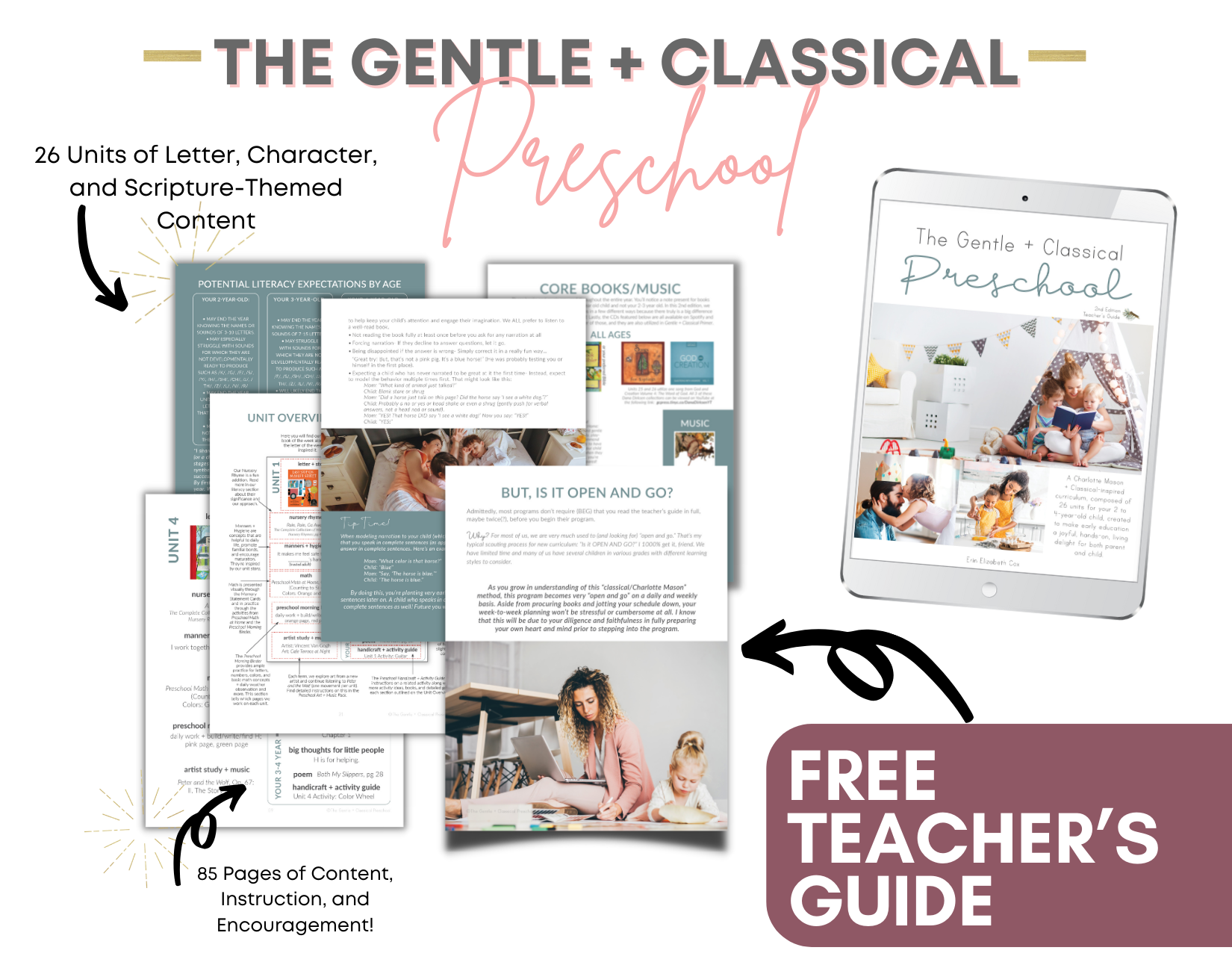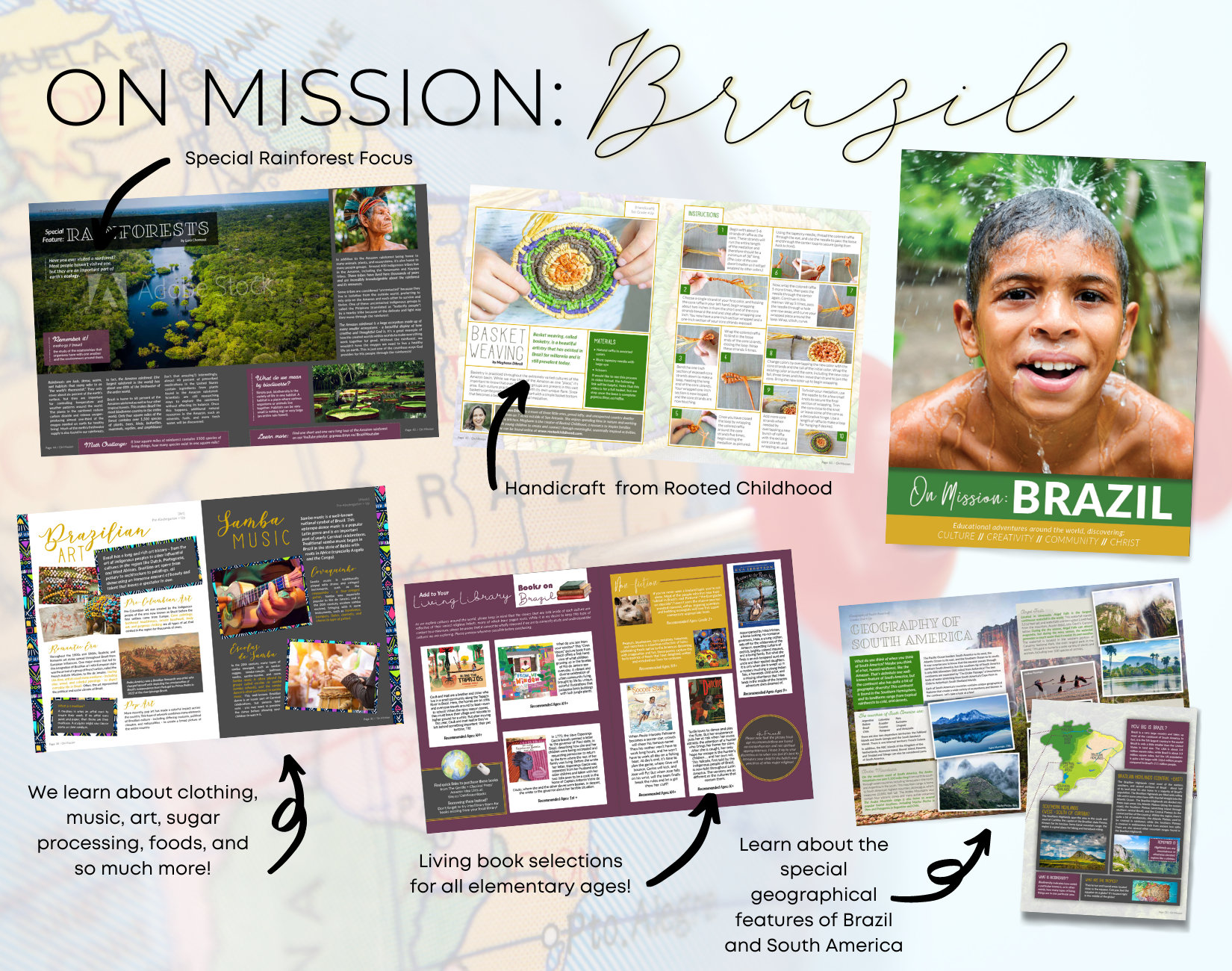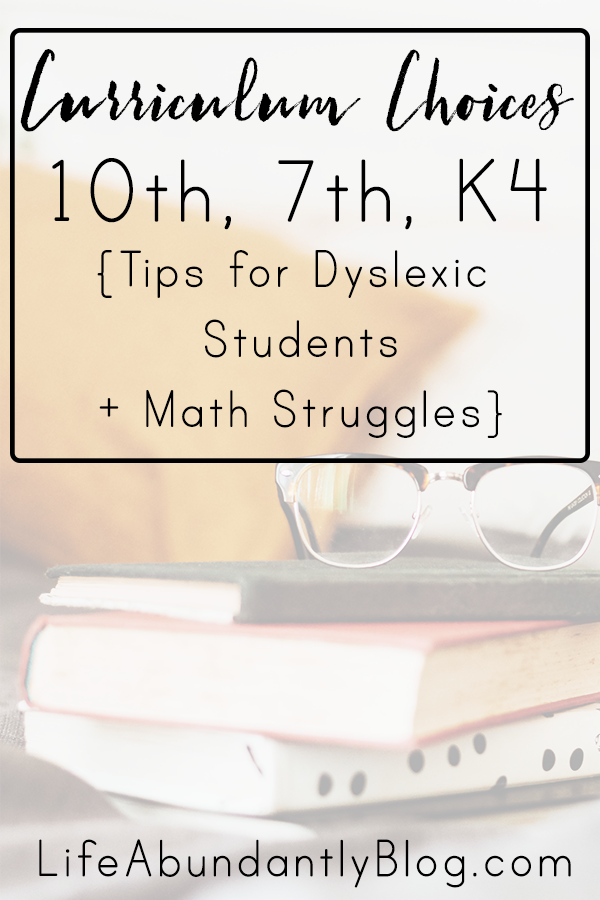Think You Have a Strong-Willed Child? (Maybe not…)
/For years and years, I would have called a couple of my children (and myself) "very strong-willed." I'd read book after book about these children who are like little attorneys. Children who must learn everything "the hard way, " and who are so determined and set in their ways that it's an act of war to have them ever obey or submit to authority.
Defiant.
Hard-headed.
Stubborn.
Big personality.
Strong-willed.
If you have a child who could give a Harvard law grad a run for their money... You aren't alone. I have two such children, and I've been told, I am that person too.
So, as a strong-willed, hard-headed, stubborn person, rearing two of the same, I think I have a unique perspective on this topic.
In a recent conversation with one such "strong-willed" child, I decided to reveal to her what I'd learned about myself from Charlotte Mason: We are not strong-willed-- we are weak willed.
In Vol 1 Miss Mason says:
“[Parents] know that if their child is to make his mark in the world, it must be by force of will. What follows? The baby screams himself into fits for a forbidden plaything, and the mother says, 'He has such a strong will.' The little fellow of three stands roaring in the street, and will neither go hither or thither with his nurse, because 'he has such a strong will.' He will rule the sports of the nursery, will monopolise his sisters' playthings, all because of this 'strong will.' Now we come to a divergence of opinion: on the one hand, the parents decide that, whatever the consequence, the child's will is not to be broken, so all his vagaries must go unchecked; on the other, the decision is, that the child's will must be broken at all hazards, and the poor little being is subjected to a dreary round of punishment and repression.
But, all the time, nobody perceives that it is the mere want of will that is the matter with the child. He is in a state of absolute 'wilfulness,'––the rather unfortunate word we use to describe the state in which the will has no controlling power; willessness, if there were such a word, would describe this state more truly.” (pg 320-321)
As I observed my daughter's reaction to being told she has a weak will, I remembered my own realization at my own weak will.
I (and she) had prided ourselves on our "strong will." No one is the boss of us, we will accomplish anything we want, and we won't do anything that we don't want to. This all sounds very, “I am woman. Hear me roar.”
But the startling realization that we are indeed weak-willed? Well, let the humility roll in. This isn't about determination or our strength (not that we don’t possess areas of strength). This is about the inability to force ourselves to do things we don't want to do (but ought to). The inability to tell ourselves no. The inability to set our own boundaries for our own speech and actions, THEN LIVE BY them.
When we speak of a “strong-willed” child, we are using positive words for a negative character trait and inadvertently puffing up what ought to be humbled. Christ himself, facing Calvary, laid aside his OWN WILL and instead submitted to the will of his Father. He did what he ought to do, regardless of how hard and painful it was. Why? Because he had the STRENGTH to submit his own will to an authority greater than his own. He had ownership over his own will. Christ was strong-willed. We are not.
When we cannot lay aside our own desires and preferences, when we are unwilling to submit, and when we bulldoze over others seeking only our own way, we are the least masterly of our own will. It does not require a strong will to follow our every whim- instead it requires a strong will to overcome the desire to follow our every whim. It requires self-control and wisdom. It requires telling yourself no.
In the end, I'm not wrapping this post up with a grand gesture of how to "fix" this issue. The most important gift I can give you is the suggestion to read Volume 1: Home Education by Charlotte Mason herself. Through her interesting, thorough, and convicting thoughts on the subject, you'll find freedom from a weak will (in yourself and your children) by the vigorous installation of habits--habits that train the will to be a strong master of all that it ought to master: actions, submission, and speech.
Through diligent habit formation, we will often be faced with new layers and depths of the effects of a weak will. Despite how hard this process is and how captive your child can feel by these new habits, recognize that ultimately your child (and you) are currently being held captive to your whims and weak will.
Mastering the will is foremost in pursuing “I am, I can, I ought, I will.”


























